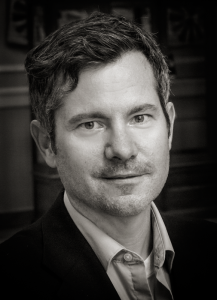by Doug Boyd
When I was first agreed to go up for First Vice President, I remember the OHA Executive Director Cliff Kuhn calling me just minutes after I had accepted. The conversation went something like this:
BOYD: Hello, Nunn Center, this is Doug.
KUHN: Hi Doug, It’s Cliff. Thanks for accepting the nomination. You know as Vice President you will be planning the annual meeting in 2016.
BOYD: Right, because I am First Vice President in October of 2014, then Vice President in 2015. That makes sense.
KUHN: You know what this means right?
[Awkward Pause]
BOYD: Uhm, that I will be planning the meeting in Long Beach?
KUHN: You will be planning the annual meeting honoring our 50th anniversary. It will probably be the most expensive meeting ever and we will have to honor everyone so you need to get started now. No pressure, I am sure it will be great. Hey, good to talk with you, I need to run. [Kuhn hangs up]
At that point, Cliff hung up the phone. As most of you know, Cliff Kuhn, the first Executive Director of the Oral History Association passed away later that year. The success of the 2016 annual meeting meant a lot to Cliff. If you knew Cliff, you knew that he loved to talk about OHA business. So, for my first President’s report in the newsletter, I have drafted a report addressed to Cliff.
Dear Cliff,
You will be so happy to know that the 2016 OHA annual meeting in Long Beach was, indeed, a great success. We had incredible attendance numbers, (almost 600 attended), we raised a lot of money and connected with many new sponsors. Despite the fact that it was one of the more expensive meetings in history, we actually made money on this meeting. Our workshops were full, our panels were well attended, the presentations were brilliant, and our membership grew.
More important than the numbers, you would have been so proud to see how OHA came together in a big way this year. We celebrated our 50th anniversary just as we had envisioned, by honoring the past while also looking forward. Sarah Milligan and Sady Sullivan were incredible program co-chairs. Remember how we wanted the 2016 annual meeting to capture the spirit of that first meeting in 1966? Together with a phenomenal program committee (far too many names to report here), we designed a program that did just that. We asked hard but important questions, exploring new opportunities for practicing and engaging in oral history practice and interpretation. We explored and considered the implications of technologies that would have been, once, considered science fiction. In every session, this conference explored and discovered new and interdisciplinary perspectives on major themes. We brought together a wide range of diverse perspectives; we pushed the boundaries of genre. The program explored oral history as public history as well as oral history as activism, and we had important conversations about race, gender, identity, community, environment, conflict, oppression, social justice, and memory. We saw new theoretical perspectives begin to emerge and we did a better job connecting to undergraduate and graduate students. I felt that this year’s conference was an incredible blend of youth and experience. Finally, this conference asked hard questions about ethics and we did a better job connecting with the archival community by escalating the important conversations on digital access strategies and effective digital preservation. We celebrated the OHA and SOHA anniversaries in a powerful way. Our Labor Working Group led the way in helping OHA successfully navigate our difficult hotel situation and the Local Arrangements committee did a tremendous job opening the Long Beach community to us.
We have much work ahead of us as an organization. We are in the process of finding a new institutional partner, hiring a new Executive Director, as well as replacing the un-replaceable editors of the Oral History Review Kathy Nasstrom and Troy Reeves. Gayle Knight and Kristine Navarro McElhaney (who stepped up to play the role of interim Executive Director) are doing an incredible job keeping us on task and moving OHA forward. Council is working to develop stronger policies and implement our strategic plan. We are working to grow our membership, our finances and, most importantly, effectively represent our membership. Oral history is more popular than ever and the OHA is playing an increasingly central role in leading the way for a whole new generation of oral history practitioners.
Cliff, you would have been proud. I miss you, old friend.
